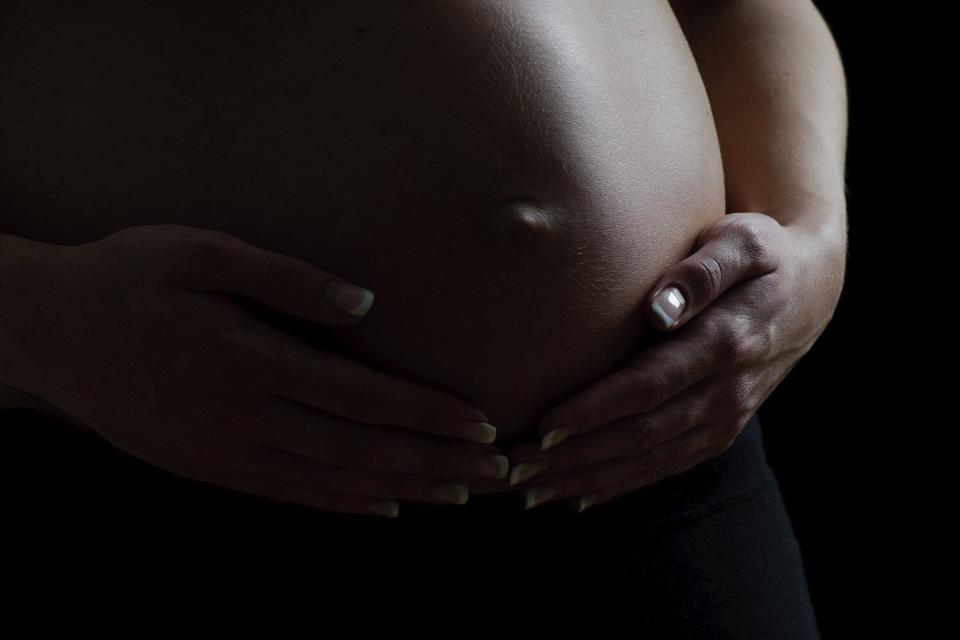Louisiana Mom Says She Was Denied an Abortion Even Though Baby Has Terminal Condition

Getty Images
A Louisiana mother said she was denied an abortion even though doctors have determined her baby will not survive after birth due to a rare medical condition.
On Monday, Nancy Davis of Baton Rouge, Louisiana, told local station WAFB-TV that doctors diagnosed her baby with acrania — a fatal condition in which a baby's skull does not form in the womb, which leads to an infant's death anywhere between minutes to hours after birth.
"It was an abnormal ultrasound, and they noticed the top of the baby's head was missing and the skull was missing," Davis, who is 13 weeks pregnant, told WAFB-TV of her first ultrasound three weeks ago. "The top of the skull was missing."
Carnegie Imaging refers to the prognosis for acrania as "uniformly dismal as [it and related conditions] are lethal disorders."
Because the pregnancy does not currently pose a danger to Davis' life and acrania does not yet fall under the Louisiana Department of Health's qualifying conditions for abortion, Davis was denied an abortion, according to WAFB-TV.
RELATED: Biden Administration Plans to Stop Buying COVID Vaccines, Treatments and Tests as Early as This Fall
Now, Davis told WAFB-TV she must decide whether to carry the pregnancy to term, knowing her baby will not survive, or cross state lines to seek an abortion in either Florida or North Carolina.
"It's a baby that's not going to be compatible with life," Davis said on Monday. "These babies either die stillborn or they die a couple minutes later."
"It's hard knowing that, you know, I'm carrying it to bury it, you know what I'm saying?" she added.
While WAFB-TV noted that Davis — who has one child — did not take a specific stance on abortion rights, she said that Louisiana state lawmakers need to consider widening the list of conditions that qualify for an abortion in the state.
"I just want them to consider special circumstances as it relates to abortion," Davis told WAFB-TV. "Medical problems, like this is one — that needs to be in it."
Michelle McCalope from the Louisiana Department of Health tells PEOPLE that the final rule will include acrania as a condition that qualifies for abortion, but the department has not yet made the rule official as it is currently collecting public comments.
"The emergency rule does — and the final rule will — provide for physician certification of other conditions that would allow for termination. LDH's final rule will include Acrania. We are still in the Notice of Intent and public comment phase," she wrote.
It is unclear if Louisiana's general provision for further medical conditions could allow for an abortion for Davis. It reads: "A profound and irremediable congenital or chromosomal anomaly existing in the unborn child that is incompatible with sustaining life after birth in reasonable medical judgment as certified by two physicians that are licensed to practice in the State of Louisiana."
But many providers are not willing to interpret the rules themselves, since the state's "trigger law" puts abortion providers at risk of being charged with a felony punishable by up to 10 years in prison and a $100,000 maximum fine, according to The Post.
RELATED: Indiana Becomes the First State to Pass Near-Total Abortion Ban Following 'Roe v. Wade' Overturn
After the law was upheld by the Louisiana Supreme Court in a decision issued last Friday, the three remaining abortion clinics in the state will relocate elsewhere, leaving Louisiana without any abortion clinics for the first time since 1974, according to WWNO.
Davis told WAFB-TV that she must make a decision on whether to seek an abortion elsewhere soon since the closest neighboring state, Florida, has banned abortion after 15 weeks. She added that her family will support her in whatever decision she makes.
She also said she would be willing to testify before the Louisiana state legislature to advocate further for this issue.

 Yahoo Finance
Yahoo Finance 